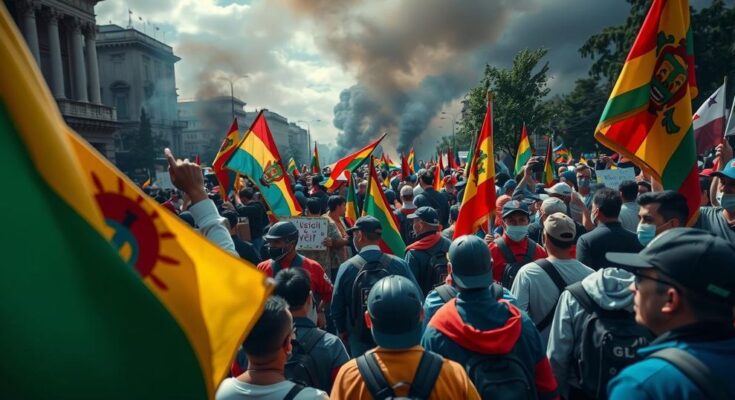Bolivia’s political climate is tumultuous as President Luis Arce and former President Evo Morales engage in a power struggle within the MAS party. Morales’ influence has waned amid societal unrest and economic hardship, leading to protests that threaten his leadership. The situation may allow opposition parties the chance to gain power in the 2025 elections, juxtaposed against significant challenges that any new government would face.
Bolivia is currently experiencing significant political turmoil due to a power struggle within the ruling party, Movimiento al Socialismo (MAS), between President Luis Arce and former President Evo Morales. This conflict has resulted in widespread protests, road blockades, and clashes with riot police, raising questions about Morales’ declining influence and the upcoming 2025 elections. After a series of protests and a failed attempt at negotiation, Morales has been left vulnerable, with his support base eroding and opposition forces potentially gaining traction. The situation presents both challenges and opportunities for the Bolivian political landscape as the country navigates economic difficulties and societal demands for change.
The political landscape of Bolivia has been dramatically altered following the resignation of Evo Morales amid accusations of electoral fraud in 2019. After years in power, Morales’ authority has been challenged by internal party conflicts, economic turmoil, and a pandemic-affected governance climate, which facilitated Luis Arce’s rise to the presidency. Morales’ current attempts to regain influence through protests have met with diminishing returns, as significant public support wanes, particularly among lower-income groups that once constituted his electoral base.
In summary, Bolivia stands at a potential crossroads. The visible decline of Morales’ leadership, coupled with internal party strife and the government’s low popularity, could create fertile ground for opposition parties ahead of the 2025 elections. Nonetheless, the challenges faced by any non-MAS administration are substantial, with pressing economic issues requiring immediate attention. Ultimately, this political turmoil might pave the way for reforms and improvements in Bolivia’s democratic processes and responses to pressing environmental concerns.
Original Source: www.americasquarterly.org




